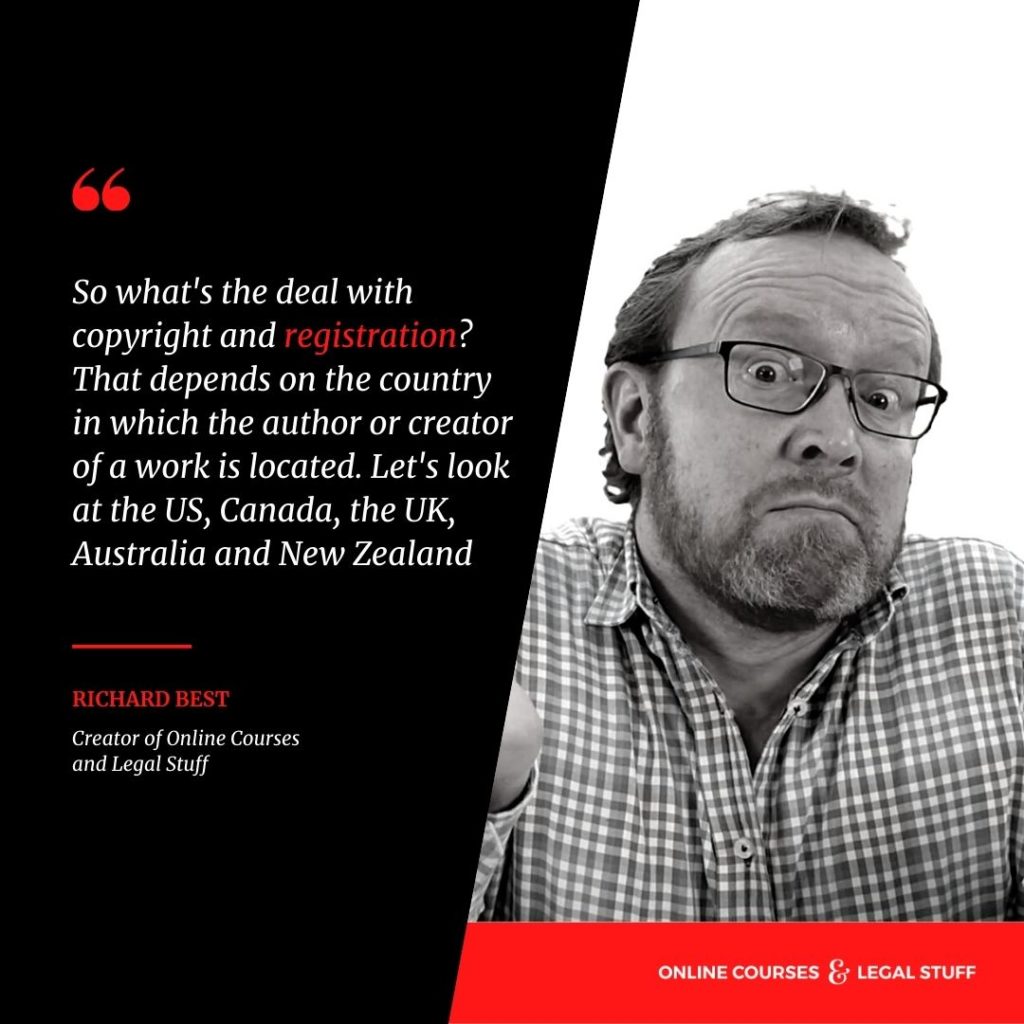
What’s the deal with copyright and registration? Well, that depends on the country in which the author or creator of a work is located. In the US, Canada, the UK, Australia and New Zealand, copyright comes into existence when a qualifying work is created. So far the laws of these countries are much the same. But both the US and Canada differ when it comes to the question of registration. Let’s take a look.
United States
Copyright exists automatically in an original work of authorship from the time it’s fixed in tangible form. As such, you don’t have to register the copyright in your course content in order to tell people it’s protected by copyright and that they’re not permitted to copy it without permission. However, in the United States, there are advantages to registration that differentiate the position there from many other countries. In the United States, not only is it possible to register your copyright work, but – and this is potentially important – registration is necessary to enforce the exclusive rights you have as a copyright holder through litigation in the courts. As I say, this is potentially important if you’re worried about other people ripping off your stuff.
Canada
As in the US, in Canada copyright arises automatically when you create an original work, such as literary or audio-visual course content. Unlike the US, you do not need to register your copyright work to enforce the exclusive rights you have as the copyright owner. However, you can register your copyright work and there can be advantages to doing that. If a defendant who has copied your material can argue successfully that it was unaware of your copyright, that might result in a lower award of damages against the defendant. But this ploy won’t work if you’ve registered your copyright work because, if it’s registered, the defendant is deemed to have notice of the copyright.
United Kingdom, Australia and New Zealand
In these countries, again, copyright arises automatically when a new qualifying work is created in tangible form, but there is no public or Government register of copyright. It can still be a good idea to mark a work with a copyright symbol though (©) along with the owner’s name and the year in which the work is published. This makes it clear that you regard your creation as being protected by copyright and that, in turn, might deter some people from copying it without your permission.(I talk more about this and related topics in Online Courses and Legal Stuff, Module 1.)
